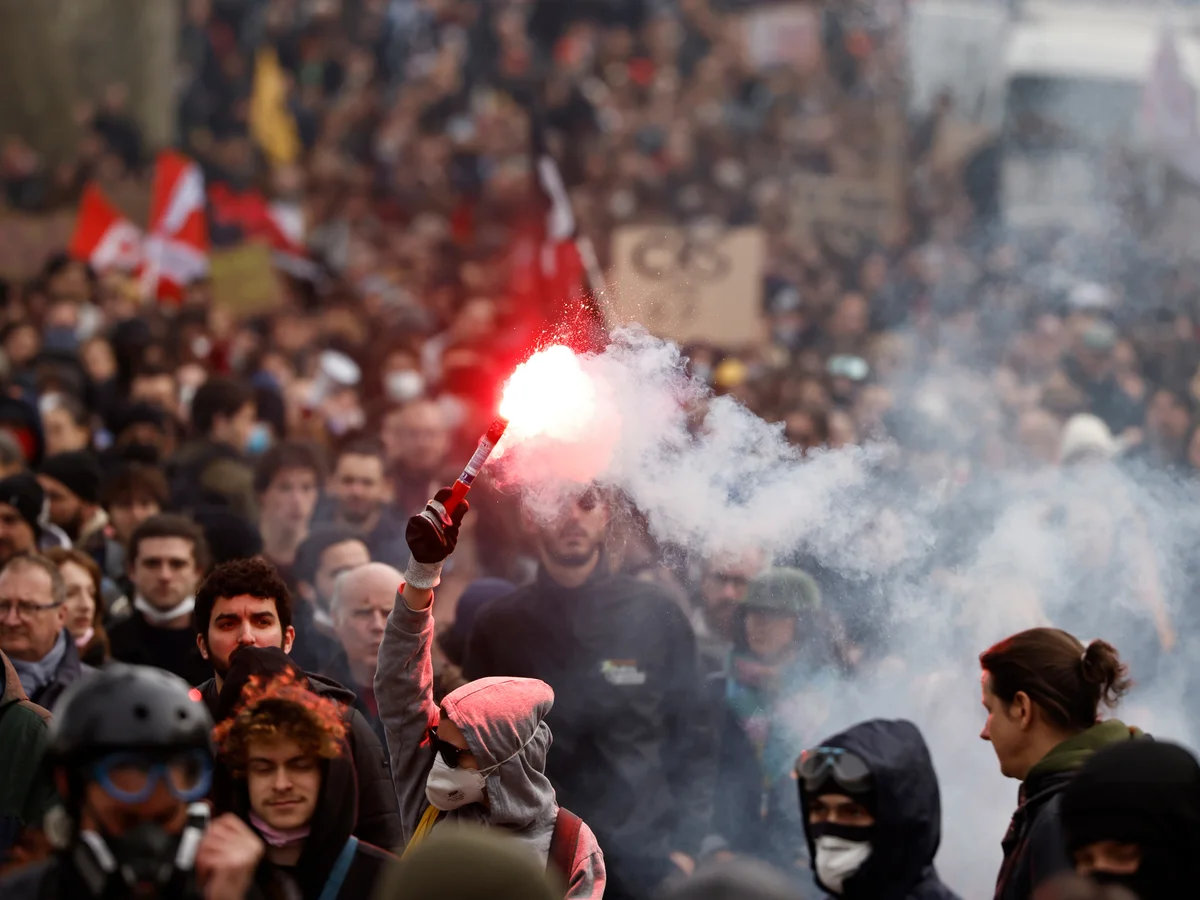France is facing a major upheaval after thousands of people across the country responded to a call to “Block Everything,” staging protests and disruptions on the very day Sébastien Lecornu became prime minister. The unrest underscores deep frustration with repeated government collapses, austerity measures, and a polarized political landscape.
Lecornu Arrives, and Unrest Follows
Sébastien Lecornu, a close ally of President Emmanuel Macron and former defence minister, officially assumed the post after the previous prime minister, François Bayrou, failed to secure sufficient support in a confidence vote. Lecornu becomes France’s fifth prime minister in less than two years.
On his first day in office, Lecornu addressed the country, acknowledging the political instability and the economic challenges France faces. He pledged a “profound break” in policy and methodology, signaling a shift—not just in tone but in substance—to bridge the divide between government and public expectations.
What Protesters Are Saying
Protesters under the banner of “Bloquons Tout” (Block Everything) rallied against cuts to public spending, budget austerity, and perceived neglect of the working class, retirees, and young people. Key grievances include proposed reductions in social benefits, cuts to public services, and proposals to remove national holidays.
The movement is decentralized and largely grassroots, drawing support via social media and messaging apps. Unlike earlier protests, such as those over pension reform or the Yellow Vest movement, “Block Everything” shows signs of broad participation across generations, professions, and political affiliations.
Disruption and Police Response
Mass demonstrations took place in major cities—Paris, Lyon, Marseille, Nantes, Rennes—and many smaller towns. Protesters blocked roads, disrupted train services, and set up makeshift barricades. Fires were ignited in some locations.
Authorities deployed an extensive security force, estimated at around 80,000 police and gendarmerie personnel, to contain the unrest. Hundreds of people were arrested across the country amid clashes at various flashpoints. Law enforcement used tear gas and other crowd control measures to disperse more aggressive groups.
Political Consequences
The political implications are already mounting. Opposition parties across the spectrum criticized Lecornu’s appointment, calling it too close to Macron’s centrist circle and not representative of change. Several parties have threatened motions of no confidence.
Analysts believe Lecornu’s government faces an uphill task: passing a budget through a fragmented Parliament, restoring trust with citizens, and finding a way to implement reforms without igniting further unrest.
What’s at Stake
- Social cohesion: The protests reflect more than just opposition to specific budget cuts—they highlight a suspicion among many that government policies favor elites over ordinary people.
- Governance stability: Lecornu steps in at a time when recent governments have been short-lived. Any sign of failure could lead to more political turbulence, possibly even early elections.
- Economic pressures: France’s deficit and public debt pose serious constraints. The government wants to rein in spending, but doing so risks triggering more unrest if perceived as unduly harsh.
Forward Look
Lecornu has signaled that consultations with opposition parties and civil society will be part of his strategy. Whether those talks lead to meaningful compromises remains to be seen.
Protests are expected to continue. More large-scale union actions are already being planned. The tension between fiscal demands — from both domestic and international constraints — and public expectations of welfare and stability could define France’s political mood in the months ahead.
















Leave a Reply